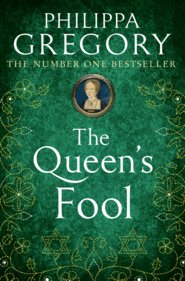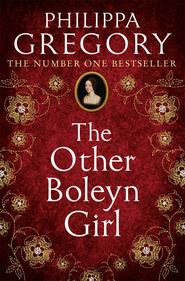По всем вопросам обращайтесь на: info@litportal.ru
(©) 2003-2025.
✖
Virgin Earth
Настройки чтения
Размер шрифта
Высота строк
Поля
‘Mr Joseph’s house,’ she said shortly, and turned and left him at the rough wood front door.
J knocked, and opened the door when a voice shouted to him to come inside.
The house was divided into two. The largest room, where J was standing, served as the kitchen and dining room. There was no separate parlour. There was a ladder at the back of the room leading to attic bedrooms. A light wooden partition, hardly a wall, divided the master bedroom on the ground floor from the rest of the house. Mr Joseph was sitting at the roughly made table in the living room, writing in a ledger.
‘Who are you?’
‘John Tradescant, from England,’ J said, and proffered the governor’s note.
Mr Joseph read it quickly. ‘I’ve got no native guide for you,’ he said abruptly. ‘I’ve got no messengers due to arrive either. You will have to wait, sir.’
J hesitated. ‘I wonder if a white person might be free to take me out, now and then. Perhaps a servant or a labourer might be spared from their work.’ He looked at the man’s unhelpful expression. ‘Perhaps just for a few hours?’
Mr Joseph shook his head. ‘How long have you been here?’ he demanded.
‘Just arrived.’
‘When you have been here a little longer you will realise that there is never a spare hour,’ the man said grimly. ‘Never a spare moment. Look around you. Every single thing you see here has to be wrested from this land. Remember your ship – did you see houses as cargo? Ploughs? Baker’s shops? Market stalls?’ He paused for emphasis and then shook his head.
‘You did not, and that is because we can ship hardly anything. All that we need has to be made or grown or wrought here. Everything. From the shingles on the roof to the ice in the cellar. And this by people who did not come here to farm; but came hoping to pick up gold plates from the seashore, or emeralds from the rivers, or pearls from out of every oyster. So not only are we farming with wooden ploughshares that we have to carve ourselves, but we are farming with labourers who have never seen a ploughshare before, wooden or metal! Who have to learn every step of the way. Who are taught by men who came out to mine gold but find themselves growing tobacco. So there is no-one, not a man nor woman nor child, who has a moment to do anything but work.’
J said nothing. He thought of his father who had travelled half way round the world and never came back without his pockets filled with treasures. He thought of the debts at home which would be mounting and only his father and two young children to care for the business of nursery plants and rarities.
‘Then I shall have to go out alone. On my own. For I must go home with plants and rarities.’
‘I can give you an Indian girl,’ the man said abruptly. ‘Her mother is in prison for slander. She’s only in for the month. You can have the child for a month.’
‘What good will a child be?’ J demanded.
The man smiled. ‘This is an Indian child,’ he corrected. ‘One of the Powhatan people. She can pass through the trees as quiet as a deer. She can cross deep rivers by stepping on stones that you cannot even see. She can eat off the land: berries, roots, nuts, the earth itself. She’ll know every single plant and every single tree within a hundred miles of here. You can have her for a month, then bring her back.’
He threw back his head and shouted an order. From the yard outside came an answering shout and the back door opened and a child was thrust into the room, her hands still full of the flax which she had been beating.
‘Take her!’ Mr Joseph said irritably. ‘She understands some English, enough to do your bidding anyway, she’s not deaf, but she’s dumb. She can make noises but not speech. Her mother is a whore for the English soldiers, or a servant, or a cook, or something. She’s in prison for a month for complaining of rape. The girl knows enough to understand you. Take her for a month and bring her back here three weeks on Thursday. Her mother comes out of prison then and she’ll want her back.’
He waved the girl towards J and she stepped slowly, unwillingly forward.
‘And don’t rape her,’ he warned matter-of-factly. ‘I don’t want a half-breed baby nine months from now. Just order her to find your plants and bring you back within the month.’
The magistrate waved them both from the room and J found himself on the doorstep in the bright morning sunlight with the girl like a shadow at his elbow. He turned and looked at her.
She was an odd mixture of child and woman; that was the first thing he saw about her. The roundness of her face and the open gaze of the dark eyes was that of a child, an inquisitive, bonny child. But the straightness of her nose and the high cheekbones and the strength of her jaw would make her a beautiful woman in only a few years’ time. Her head was not yet level with his shoulder, but the long legs and slim long feet showed that she would grow taller. She was dressed according to Jamestown convention in someone’s cast-off shift which reached down to her calves and flapped around her shoulders. Her hair was long and dark, flowing loose on one side of her head; but the other side, around her right ear, was shaved close, giving her a curious, exotic appearance. The skin of her neck and her shoulders, which he could see around the gaping gown, was painted with outlandish blue ridges of tattoos. She was looking at him with apprehension, but not outright fear; looking at him as if she were measuring his strength, and thinking that whatever might happen next she would survive it.
It was that look that told J she was a child. A woman fears pain: the pain inside her body, and the pain of a man’s command. But this was still a girl, since she had a girl’s confidence that she could survive anything.
J smiled at her, as he would have smiled at his own nine-year-old daughter Frances, left so far away in London. ‘Don’t be afraid, I won’t hurt you,’ he said.
Years later he would remember that promise. The first thing he, a white man, had said to an Indian: ‘Don’t be afraid. I won’t hurt you.’
J led the girl away from Mr Joseph’s house to the shade of a tree in the centre of what would in England have been the village green, but here was a dusty piece of waste ground between the river and the Back Road. A couple of cows foraged pessimistically around them.
‘I need to find plants,’ J said slowly, watching her face for any signs of understanding. ‘Candlewood. Soapberry. Spoonwood.’
She nodded, but whether she understood him, or was merely trying to please him, he could not tell.
He pointed to the tree. ‘I want to see trees.’ He pointed to where the thick line of the forest fringed the river, beyond the desert of waste ground that the settlers had made around the little town, tree stumps still showing in the new fields, dust blowing away from the exhausted tobacco rows.
‘Will you take me into the woods?’
She looked at him with sudden keen intelligence, and stepped towards him. She put a hand on his chest and then turned from him and mimed walking: a wonderful vivid mime that made J laugh at once. It was the English walk, the rolling swagger of a self-important man walking in ill-fitting shoes. She rolled her hips as English men do when they walk, she picked up her feet as English men do when their blisters are nipping their toes. She nodded at him when she saw that he understood, and then she turned and pointed far out beyond the felled trees to the dark, impenetrable wall of forest. She stood for a moment, and then spread her arms and with a little shudder of movement from the crown of her dark head to her bare feet made him see – see the inexpressible: a tall tree with wide spreading branches. It was an illusion, like a mountebank’s trick; but for a moment J, watching her, saw not girl but tree; saw the movement of wind in the branches, saw the sway of the trunk. Then she stepped away from her mime and looked at him inquiringly.
‘Yes,’ J said. ‘Trees. I want to see trees.’ He nodded and smiled at her, nodded again. Then he stepped closer and pointed to himself. ‘And flowers,’ he said. He bent down and mimed delightedly finding something on the ground, picking it and smelling it.
He was rewarded by a bright smile and then a tiny, half-suppressed chuckle of laughter.
He mimed picking berries and eating them, he mimed gathering nuts or digging roots from the ground. The girl nodded; she had understood.
‘We go now?’ J demanded. He gestured towards the woods, started to march forward to indicate his readiness.
She looked at him from his heavy leather boots to his tall hat. She said not a word but J sensed that his clothes, his boots, his walk, even his very body – so heavy and stiff – seemed to her an impossible burden to take into the woods. But then she sighed, and with a little lift of her shoulders seemed to shrug away the difficulty of how a lumpish overdressed white man could be taken into the forest. She stepped forward and with a gesture of her hand indicated that he should walk behind her, and headed towards the trees at a gentle trot.
Sweat poured off J before they were halfway through the cultivated fields outside the half-opened walls of Jamestown. A crowd of midges and strange, sharply biting moths spun around his head and stung and nipped at every exposed inch of skin. He wiped his face with his hand and it came away dirty with the wings and legs of little bloodsucking insects and left his face sore. They reached the shade of the forest edge; but it was no better. At every pace a small cloud of insects bloomed around his big feet and fastened themselves to every piece of reddening skin.
J swatted and wiped and smoothed his face and his neck and his hands, making a thousand awkward ungainly movements to each one of her gliding paces. She trotted like an animal, with no wasted energy. Her arms were relaxed at her side, her upper body still, only her feet pattered forward in little steps, steadily one before the other in a thin one-track path. J, watching her run, at first thought it was the pace of a little child; but then found he could hardly keep up with her as she crossed the fields and headed for the trees.
The edge of the forest was like the face of a friend with half the teeth knocked out. The girl looked around at the ragged stumps of trees as if she was grieving for the loss of someone’s smile. Then she made that little gesture of her shoulder which said so eloquently that there was no accounting for what a white man might do, and went forward with that slow, very slow trot that was just faster than J’s normal walk, and too slow for his running stride. He was continually walking and then breaking into a run to catch her up and then walking again.
As soon as they were beyond the felled trees she stepped off the path, looked around her, listened for one intent moment and then went to a hollow tree at the side of the path. With one fluid movement she flung the shift over her head, folded it carefully, and stowed it in the roots of the tree.
She was all but naked. A little buckskin skirt covered her privates in front but left her long thighs and buttocks exposed. Her breasts were those of a young girl, pointed and as firm as muscle. J exclaimed, not with desire but with fear, and looked around him. For a moment he thought he might have been entrapped by her, and that someone would spring up to witness that he was with her, looking at her shameful nakedness, and some dreadful punishment would follow.
The forest was silent, there was no-one there but the two of them. At once J imagined that she must be inviting him, seducing him; and he could not deny that she was halfway to being desirable. But then he saw that she was not even aware of him, blind to his rapid succession of fears and thoughts. Without fear, without any sense of her own nudity, without the shame she should feel, she bent to the foot of the tree and drew out a small black jug. She dipped in her fingers and drew out a handful of a reddish grease. She smoothed it all over her body as a rich woman will stroke perfume on her skin, and smiled at J when she straightened up and her body glistened with it.
He could see now that the blue and red tattoos which ringed her shoulder blades went down her narrow back in wild spirals. Only her small breasts and belly were bare of them. The grease had added a redder colour to her skin and a darker sheen to the tattoos. She looked stranger and older than she had on the Jamestown green. Her hair looked longer and thicker, her eyes darker and wilder. J watched this transformation from a child in someone’s hand-me-down clothes to a young woman in her own gleaming skin with a growing sense of awe. She had changed from a serving maid – the child of a criminal serving maid – into a creature of the wood who looked as if she belonged there, and whose skin, dappled with the light through the shifting canopy of the leaves, was almost invisible against the dappled light of the forest floor.
She held out the pot for him to take some grease.
‘No, thank you,’ J said awkwardly.
Again she proffered it.
J shook his head.
Patiently she pointed to the cloud of insects around his face and neck, and J noticed for the first time that there were no midges and moths around her. She thrust the pot towards him.
Squeamishly, J dipped his hand into the pot and brought out a little grease on the tips of his fingers. It smelled rancid like old sweat and well-hung meat. J could not help a swift expression of distaste at the powerful stink, he wiped the grease away on a leaf and shook his head again. The girl was not offended. She merely shrugged and then corked the pot with a bundle of leaves, and put it in a woven bag which she drew out from under the tree trunk along with a small quiver made of reeds holding half a dozen arrows, and a small bow.
The quiver she hung at her side, the bow over her shoulder, the soft woven bag across her body to hang on the other hip. Then she nodded to him briskly, to indicate she was ready. She gestured towards the river – did he want to go along the shoreline?












